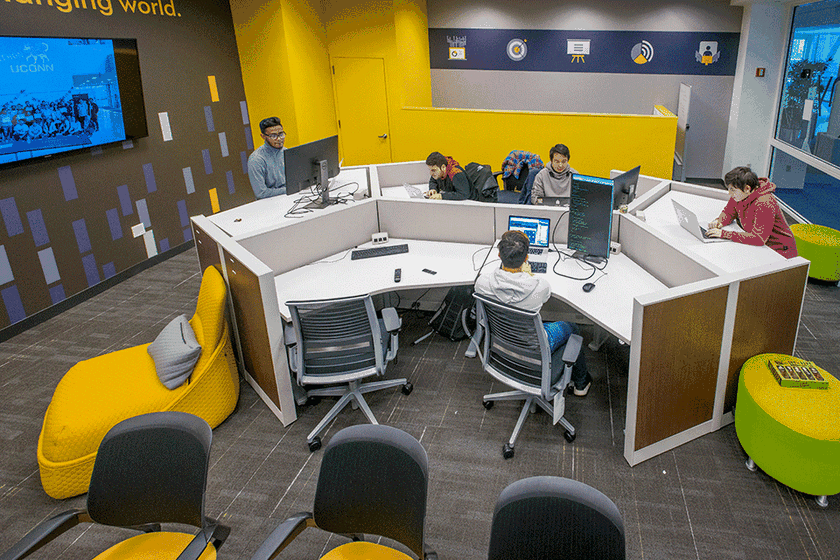
One of the best ways to learn how to do something is to go ahead and do it and learn through your experiences. No one was born knowing how to walk or talk, but through practice, we learned how to do it. This idea applies to all walks of life, specifically careers. Experiential learning is a great way to not only learn about your career path but also determine if a career path is even for you. Regardless of whether you pursue the industry further, experiential learning can help you develop transferable skills that you can take with you and apply to your future positions. Thus, it is a great opportunity to take part in internships, co-ops, and other types of experiential learning. The Center for Career Development website contains several resources that can help you land an opportunity. Here are some examples.
Internships
Internships are work experiences that allow students to learn more about their major or career, in a hands-on fashion that is typically more involved than a part-time job. In many cases, credit can be earned for completing an internship. On the Career Center website, there are many different sources of information on different aspects of internships, including funding sources, credit information, and differing types. There are also links to Handshake, as well as other search engines where you can look for resumes that suit your intended career path.
Co-ops
Cooperative Educational Experiences, commonly known as co-ops, are full-time positions that occur over the course of a semester. While a student does not usually take classes in concurrence with participating in a co-op, they retain full-time student status. Students can find further information about co-ops on the Career Center website, including contact people, FAQs, and steps on how to register.
Research
Research is the process of investigating data and materials with the intention of creating new knowledge, and fellowships are the monetary assistance that often allows students to do so. The Career Center website lists several resources for finding fellowships, including ProFellow, Pivot, the TIP Innovation Fellows Program, and more. There are also guides on how to not only find research programs but how to create your own research opportunities as well. Lastly, there are links to apply to share your research with the UConn community and beyond.
If you are interested in experiential learning, or are looking for more information, consider scheduling a Career Coaching appointment with the Center for Career Development, either by visiting Handshake or our office, located in Wilbur Cross 202.
